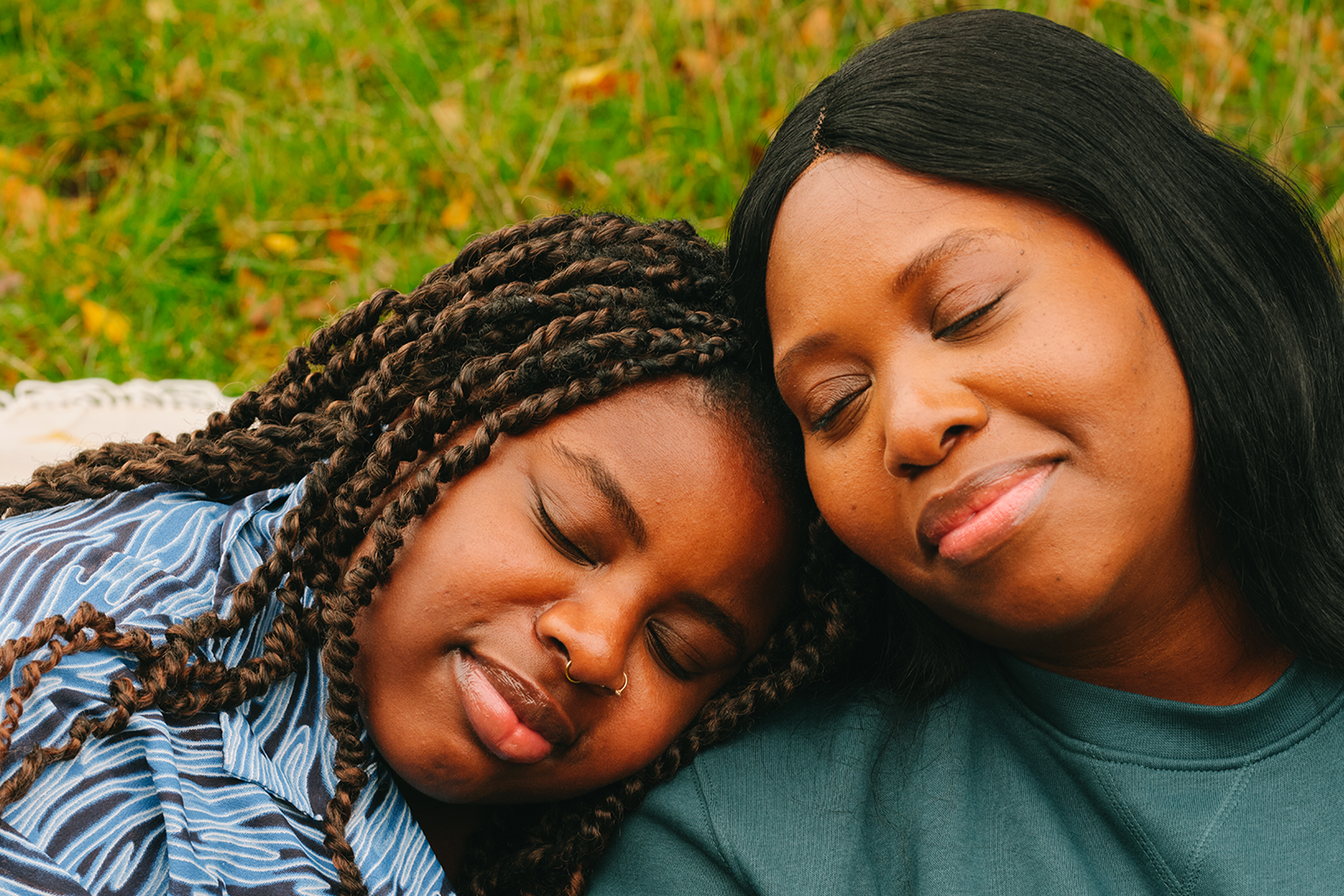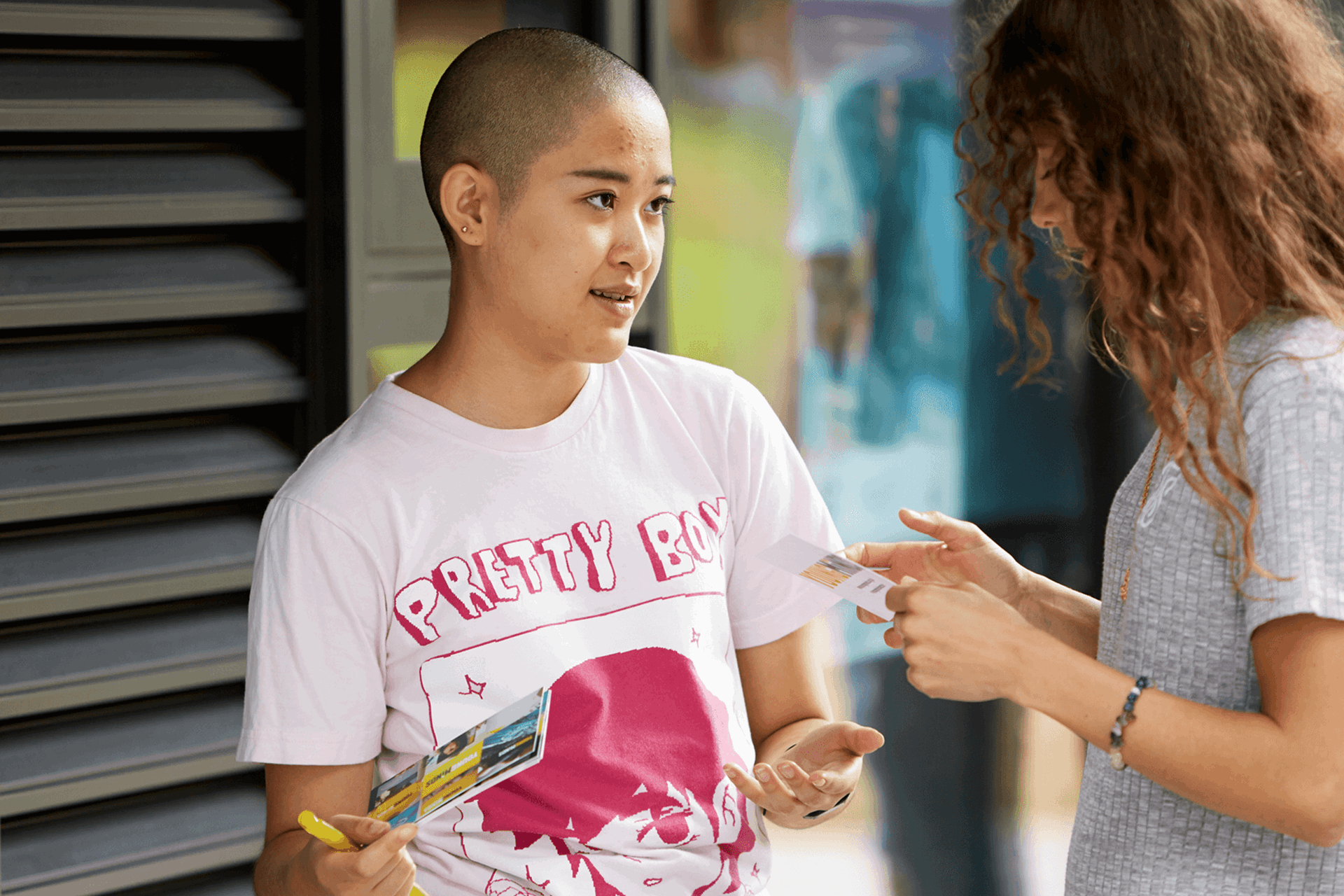Topics mentioned: trauma, anger, alone and misunderstood, derealisation and depersonalisation, counselling and therapy
About: Kay understands how lonely processing trauma and dissociative symptoms can feel, but you are not alone. She shares her advice on finding hope and support.
For a very long time, I couldn’t say the word ‘trauma’. I couldn’t even write or type it. I felt guilty for the word even being associated with my experiences.
Before I begin, I want to address that I’m still processing the fact that I’ve experienced trauma myself. I definitely haven’t fully accepted it yet. The idea of writing this blog was born from how completely alone I have felt in this process. I want to reach out to anyone struggling with accepting they’ve experienced trauma in any form to share my experience. You are most definitely not alone.
How it felt to name my experience
I remember the first time my psychologist put a name to my experiences. I felt like I’d been winded for a second – but then the sudden fear that I’d somehow misrepresented the situation flooded in. I don’t think this feeling has ever really left.
For a very long time, I couldn’t say the word ‘trauma’. I couldn’t even write or type it. I felt guilty for the word even being associated with my experiences. Feeling angry and betrayed, alongside overwhelming guilt and shame, I fell into more self-destructive habits and withdrew into myself. It felt like most of the things I’d forgotten had happened came back to swirl around my mind constantly - I didn’t know what to do with myself.
Then came the overwhelming desire to be ‘strong’ and prove my strength. I wanted to feel tough when I felt weak (a stage I’m currently trying to work through). I imagined myself not being a people pleaser. Not letting past experiences dictate every single interaction. I imagined feeling safe somewhere or with someone and how good that must feel and how much I want it. I couldn’t stop thinking about how much I wanted to tell someone, anyone, everything.
The most difficult thing I've found with dissociative experiences is when I feel so far removed from myself and my body. I feel even further from my friends and people I love.
Now I'm writing to reconnect with myself
I struggle with dissociative symptoms (feeling disconnected from yourself) and episodes and have done since I was about 11 years old. There is a chunk of about three or four years of my life that I have very little recollection of and the bits I do remember are either incredibly random or horrible - with nothing in between. I sometimes experience a sudden flooding of intolerable emotions that I didn’t even know existed, and I can’t place why. It is genuinely terrifying and physically painful.
The most difficult thing I've found with dissociative experiences is when I feel so far removed from myself and my body. I feel even further from my friends and people I love. Sometimes it feels like they’re strangers I could be passing in the street and the guilt that comes with that can be so overwhelming. For the past year, there has been no break from the derealisation/depersonalisation. While there have been times where it has varied in intensity, I haven’t once, even for a second, felt in my body. It’s like I just dropped out of my body and never came back. I’ve found it incredibly hard to find people who understand what it’s like which makes the experience even more lonely.
Writing, alongside music and theatre, has always been something I’ve hugely enjoyed. As I’ve got older, I have realised that a lot of the short stories and plays I wrote when I was younger featured characters with similar experiences and emotions to me, except they were ‘saved’. Now I’m using writing to face up to my reality as opposed to trying to escape it (okay, well, maybe both).

You are not a lost cause
While I can honestly say that some of my struggles have increased since beginning to see the pain for what it truly is, my mindset has also shifted. I feel less of a desperate need to work out ‘why I am the way I am’. I am also starting to see a psychologist to help with my dissociative experiences (among other things) and while I’m not anticipating things to change quickly, I am hopeful! This time I do want to work on the things I struggle with, and I think that’s probably the most important thing when going into treatment.
The most vital thing that I want to stress is that this is my experience. Yours might look really similar, but it also might look really different, which is absolutely okay! I’m sending hope to you, because you’re not a lost cause and it won’t be like this forever!
My advice for anyone coping with trauma
Firstly, if you’re in immediate danger, please always ring 999.
Don’t compare the traumatic event(s) that you have experienced with the experiences of others. I know it’s easier said than done but it is NOT worth it. Comparing only gives you the opportunity to invalidate your own experiences and distress.
This can be your GP, mental health practitioner, or a teacher. You don’t have to disclose what you’ve experienced if you’re not ready, but it can help to explain your current struggles. You can hopefully feel safe enough to share one day, but don’t put pressure on yourself.
If you find specific times/situations triggering, have something that you know you can rely on that feels familiar and makes you feel as ‘safe’ as possible - for me, I watch the same TV shows on repeat and use music a lot! I also spend time with my dog (she’s amazing!).
Don’t get frustrated with yourself if methods that work for other people, such as grounding and mediation, don’t work for you - you will find something that does - you are not a lost cause, ever.
While I’m not anticipating things to change quickly, I am hopeful! This time I do want to work on the things I struggle with, and I think that’s probably the most important thing when going into treatment.
More information and advice
We have tips and advice to help you find the support you need. Take a look at our guides.
Where to get help
However you're feeling, there are people who can help you if you are struggling. Here are some services that can support you.
-
Childline
If you’re under 19 you can confidentially call, chat online or email about any problem big or small.
Sign up for a free Childline locker (real name or email address not needed) to use their free 1-2-1 counsellor chat and email support service.
Can provide a BSL interpreter if you are deaf or hearing-impaired.
Hosts online message boards where you can share your experiences, have fun and get support from other young people in similar situations.
- Opening times:
- 24/7
-
Samaritans
Whatever you're going through, you can contact the Samaritans for support. N.B. This is a listening service and does not offer advice or intervention.
- Opening times:
- 24/7
-
Mind
Offers advocacy services, as well as information and signposting on mental health difficulties, via the Mind Infoline.
Also hosts Side by Side, an online community for those aged 18 and over to connect with others who are going through, or have been through, similar experiences.
- Opening times:
- 9am - 6pm, Monday to Friday (except for bank holidays)






